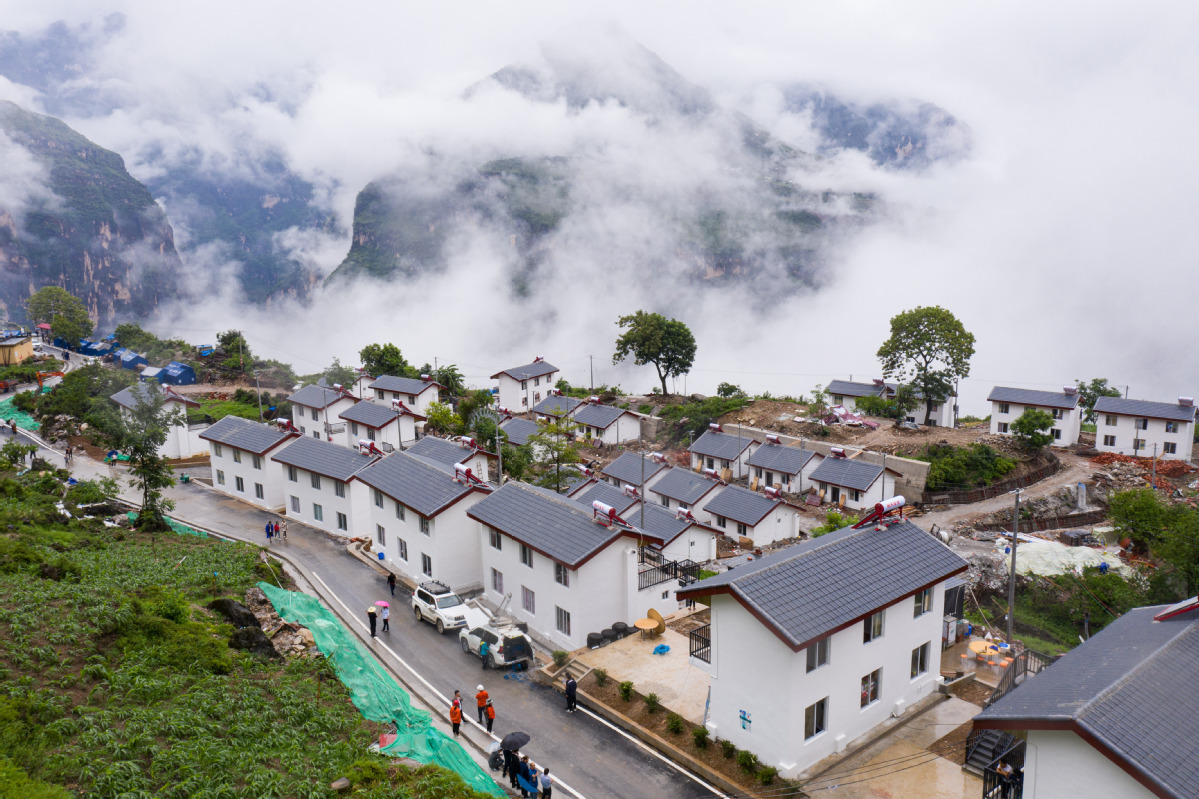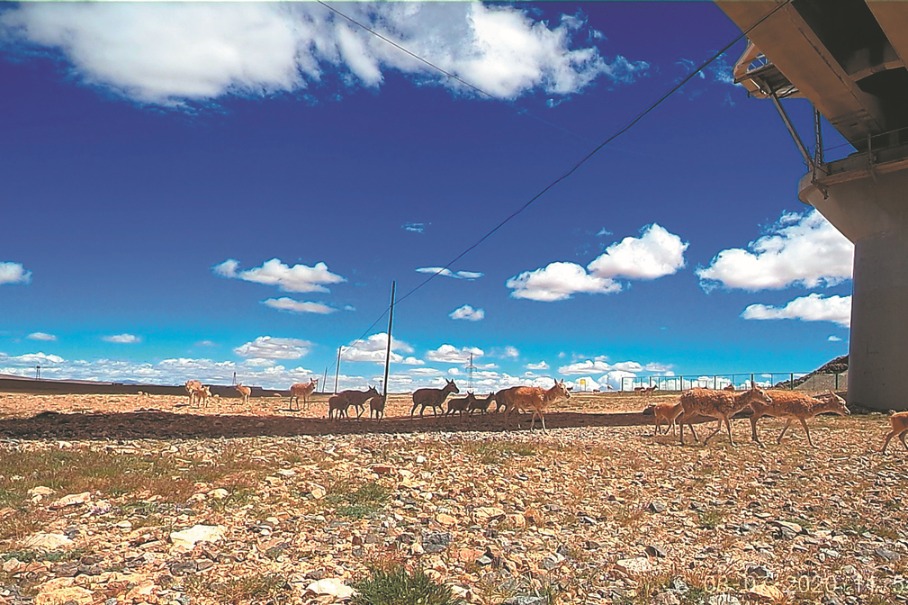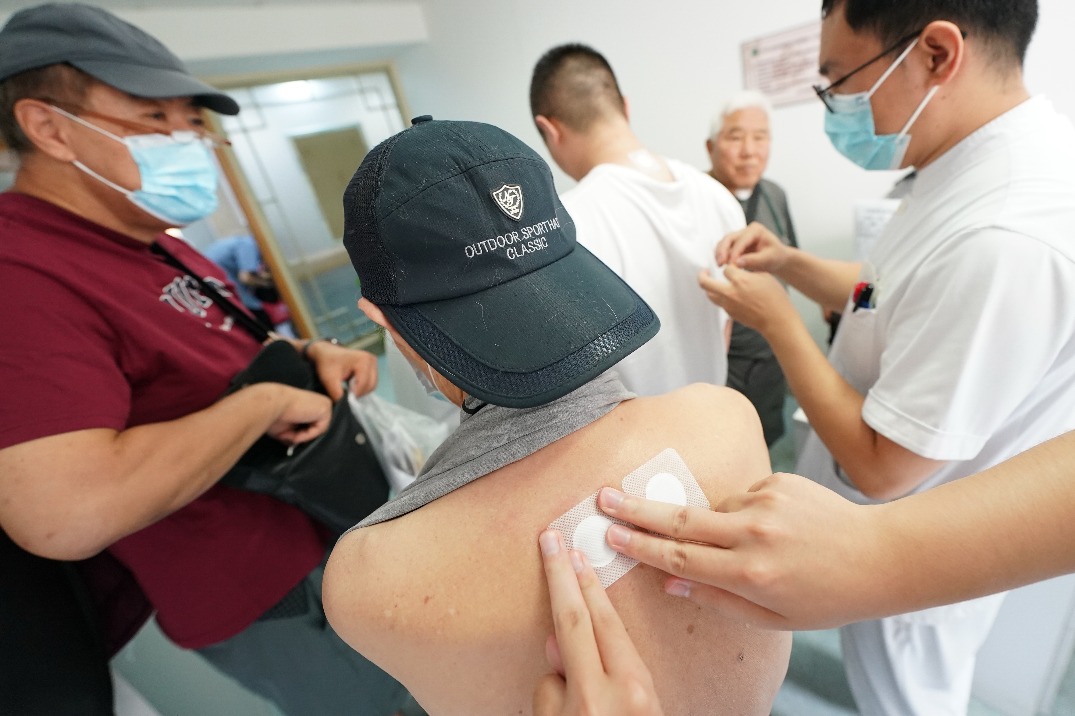How China eradicated absolute poverty
By Asit K. Biswas/Cecilia Tortajada | China Daily | Updated: 2021-04-12 07:56

Within a span of 40 years, China has lifted about 800 million people out of absolute poverty and become the second-largest economy in the world. In 1980 China's per capita GDP was $194.80-10 percent of Brazil ($1,947.28) and 73 percent of India ($266.58). But thanks to years of good economic management and rapid growth, its per capita GDP increased by more than 58 times to $10,216,6 in 2019-nearly 5.45 times of India ($2,099.60) and 1.31 times of Brazil ($8,717.20), according to World Bank data.
China's economic performance over the past four decades has been the envy of the world. To top it, it eradicated absolute poverty last year. The UN Millennium Development Goals Report of 2015 said the goal to reduce global poverty by half by 2015, compared to the 1990 level, was possible primarily because of China's powerful performance.
In 2012, about 100 million people in China were still living in absolute poverty. Taking note of that, President Xi Jinping later stressed that elimination of poverty was one of the three "tough battles" China was fighting, which it would win by the end of 2020. The other two were to reduce environmental pollution and prevent risks.
China set its poverty line in 2011 at 2,300 yuan per year (6.3 yuan per day) at 2010 constant prices. The amount was then equivalent to $340. Since a poverty line is set based on people's income and living conditions, healthcare and education, China's definition of poverty is more comprehensive than most other benchmarks.
So how did China achieve this Herculean task of eradicating absolute poverty when most other developing countries are still struggling to meet the MDG-1 target by 2030? Having been regular visitors to China since 1980 and observed its poverty eradication program first hand, we believe other countries can learn six important lessons from China's experience.
First, a country's top leadership needs to make poverty eradication its top political priority, not for years but for decades, to win the battle against poverty. And that is exactly what the Chinese leaders did. Former leader Deng Xiaoping introduced agricultural reform in 1978 when China was an agricultural society and more than 75 percent rural residents lived in absolute poverty. Deng aptly noted: "Socialism is not poverty, and poverty is not socialism."
All the leaders in the post-Deng era continued to give priority to poverty alleviation, with President Xi vowing to eliminate abject poverty by the end of 2020. In early 2020, when China was close to realizing the poverty-elimination goal, he, however, stressed that, "being lifted out of poverty is not an end by itself but the starting point of a new life and pursuit".
Second, poverty alleviation policies must be innovative, implementable and dynamic, and should be modified according to the changing circumstances. While the agricultural reform of 1978 focused on increasing food production and ensuring self-sufficiency in grains, the leaders started introducing pivot policies in the mid-1990s to enhance the rural economies' competitiveness by modernizing agricultural production and diversifying economic activities. And since 2010, China has used a coordinated approach to improve the socioeconomic and environmental health of rural areas.
Third, investments were made to substantially improve rural infrastructure such as roads, irrigation, drainage and flood control systems, and make the internet accessible to all in rural areas. Efficient transportation networks connected farmers to markets, and new policies were introduced to encourage the manufacturing and service sectors to move into rural areas, thus creating jobs and boosting people's incomes, while setting a new goal of ensuring food security for the rural poor. And e-commerce platforms such as Taobao made agriculture more demand driven.
Fourth, China continued to make major structural changes in institutional arrangements over the years. For example, it encouraged mechanization in agriculture, which reduced the need for workers on small farms. This in turn ensured those workers could pursue other income-generating activities. And cooperatives not only gave farmers' economy of scale for purchasing what they needed and market their products collectively, they (along with digitalization of land holdings) also ensured consolidation of small farms into large units through transfer of operational rights to a single large farm management unit. These large units were managed by well-educated, professional managers.
Fifth, provision of appropriate social services played a key role in eradicating poverty. The Chinese leadership introduced rural health insurance and pension programs in the early 2000s, with the unconditional cash transfer to the rural poor under rural minimum basic living guarantee plan (dibao) providing an excellent social safety net for all the real poor.
Sixth, the massive investments in rural areas, however, made corruption a big issue, which the leadership strictly dealt with. In 2018 alone, the Central Commission for Discipline Inspection, China's top corruption watchdog, recovered 730 million yuan ($111.46 million) misappropriated from the rural poverty alleviation funds. This ensured poverty alleviation funds were properly and efficiently used.
These six factors helped China eradicate absolute poverty. Other developing countries have much to learn from them. But if they wish to replicate China's experience, they have to keep in mind that poverty alleviation is a long-term process which needs sustained support from the highest levels of the government.
The views don't necessarily represent those of China Daily.
Asit K. Biswas is a distinguished visiting professor at the University of Glasgow, UK, and director of Water Management International Pte Ltd of Singapore. Cecilia Tortajada is a professor at the School of Interdisciplinary Studies, at the University of Glasgow.
If you have a specific expertise and would like to contribute to China Daily, please contact us at opinion@chinadaily.com.cn, and comment@chinadaily.com.cn.
























